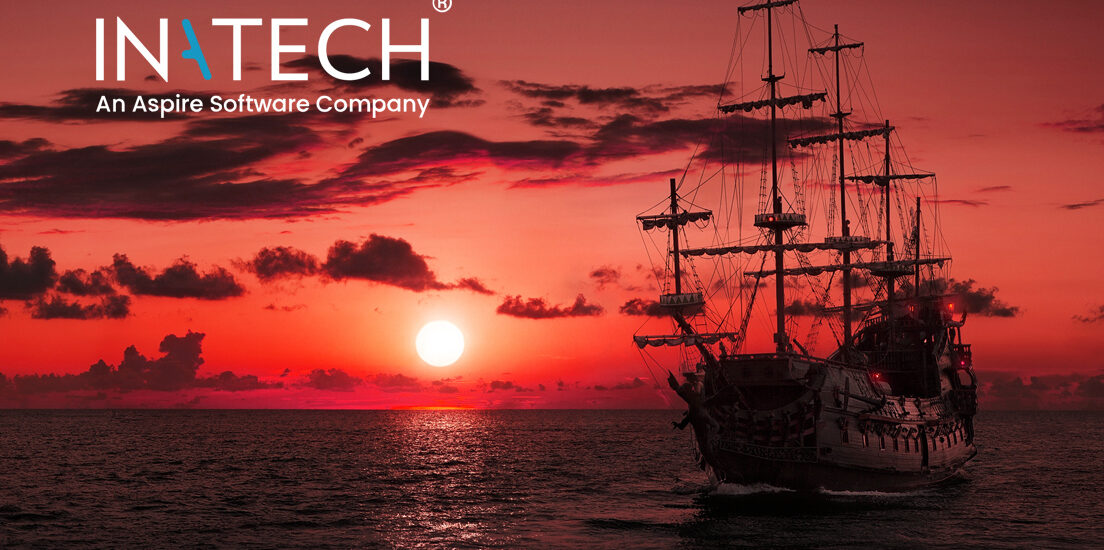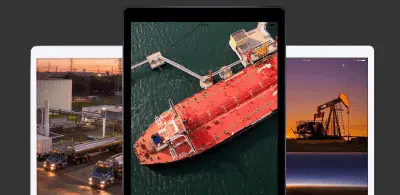Can a Shipping Industry Rooted in the 14th Century Cope with the Upcoming Changes Needed?
- December 6, 2023
- Posted by: Inatech ETRM
- Categories:

The shipping industry, with its historical roots tracing back to the 14th century, finds itself at a critical juncture. Old methods of managing fuel procurement and related operations can only hold companies back now – with large fleets and new environmental regulations, it’s safe to say that we’re past the point of no return.
This article explores how the industry can adapt to today’s disruptive challenges and the transformative potential of software for shipping management.
Modern-Day Challenges in Marine Fuel Management
Since its inception, the shipping industry has relied on practices such as manual fuel sourcing and consumption tracking through the likes of handwritten logs. Such methods may have been fit for purpose hundreds of years ago when fleets were smaller and environmental regulations were non-existent.
However, the industry is now undergoing a significant transformation. As operations increase in scale and the complexity of fuel procurement increases, using outdated, laborious process threatens the bottom line. Another threat is the requirement to meet environmental targets while staying profitable. Below, we’ll explore the situation in more depth.
Fuel Complexity
As the industry moves towards cleaner and greener alternatives to meet decarbonisation goals, the procurement of bunker fuel has grown increasingly intricate. It’s not just about picking a type of fuel anymore; it’s about choosing one that aligns with environmental standards, the ship’s engine compatibility, and commercial viability.
Balancing Profitability and Compliance
Ensuring profitability while simultaneously complying with environmental regulations is a fine line to tread. While adopting cleaner fuels might align with regulations, they might also come at a premium cost, directly affecting the bottom line.
New regulations are being introduced all the time. For example, the FuelEU Maritime Regulation states that, as of January 1st 2030, any ships (container or passenger) greater than or equal to 5,000 GT must connect to shore power at the main EU ports in the trans-European transport network (TEN-T). In addition, the Alternative Fuels Infrastructure Regulation seeks to regulate shore power supply and incentivize infrastructure development at TEN-T ports.
New research continues to explore the effects of marine emissions and will no doubt change the rules further, meaning that companies need to be agile in order to keep up (without compromising profit).
Port Arbitrage
Decisions about where to refuel are no longer solely based on a ship’s route or the price of fuel. With port arbitrage, fleet operators have to consider fluctuating price differentials between ports and determine if rerouting for cheaper fuel will offset the costs of the detour.
Cross-Functional Coordination
Bunker procurement isn’t a standalone operation; it impacts and is impacted by other departments like chartering, finance, and general operations. The need for seamless coordination and communication across these functions is paramount.
Fuel Price Volatility
In an era marked by fluctuating global oil prices, efficient marine fuel management is crucial for cost-saving and long-term sustainability. The current concern is that the Israel-Hamas war may cause oil prices to skyrocket due to the blocking of a vital transit route for seaborne oil and gas cargo from the Middle East to the global market.
Would you have benefited from more accurate insights during the pandemic or the start of the conflict in Ukraine? Do you need these insights now? If so, marine fuel management and procurement software is the missing piece of the puzzle.
Advanced Marine Fuel Management Software
Shipping companies and fuel suppliers both need robust software in order to meet current and future demand while staying profitable. The software should allow companies to make optimal purchasing choices, not just based on price, but also on fuel quality, compatibility, and availability.
Our range of integrated applications do exactly that, streamlining and automating fuel management every step of the way, from purchasing through to contract management and accounting. We also offer Bunkertech, a dedicated solution for traders and suppliers.
By integrating best practices, our software ensures consistent governance across different stakeholders, streamlining the complex decision-making processes that modern shipping demands. But how exactly does marine fuel management software help, in concrete terms?
Support for Alternative Fuels
Our solutions support fuels including – but not limited to – LNG, methanol, hydrogen, and ammonia. As well as ensuring environmental compliance, you can gain insights into your procurement process, such as who and where you are buying fuel from and why, and how your prices compare to the market. This ensures you can make data-driven decisions that will lower operational costs and ensure ongoing compliance.
A Single Source of Truth
Using manual, disparate processes and data sources is a recipe for chaos and inaccuracy – and of course, this problem is compounded as operational complexity increases. Such methods bring risks such as duplicated effort and wasted resources, as well as a lack of timely information (for example, procurement requests not being received on time).
A cloud based shipping management software solution provides a consolidated view of the entire business and ensures that data is securely stored, protected from loss or file corruption.
Real-Time Insights
Cloud based software enables the real-time monitoring of essential data on fuel consumption, ensuring vessels adhere to planned consumption rates. This provides agility, enabling immediate adjustments to optimize fuel use.
Advanced predictive algorithms can also forecast future consumption based on factors like weather conditions, routes, and vessel speed, helping operators to make informed decisions and optimize routes for fuel efficiency.
Ultimately, whether you need to keep tabs on operating costs, inventory or anything else, software ensures you have this information at your fingertips so you don’t have to manually aggregate it from multiple sources and departments.
Risk Management
Fuel management tools enable shipping companies to hedge against fuel price volatility. Through market trend analysis and procurement strategies, they ensure cost-effective fuel procurement and consumption.
We offer state-of-the-art tools for risk analytics and reduction, stress testing, real-time position management, margin optimization, hedge effectiveness, and more. Bunkertech, for example, contains advanced credit management functionality that handles complex credit issues such as exposure across multiple related entities.
Whether it’s a case of managing physical inventory or managing inventory positions, including negative inventories and virtual inventory, our tools handle it all.
Conclusion
Technology is the key to bringing the shipping industry out of the 14th century. Regulations are always changing but the unpredictability doesn’t stop there – who knows what’s next? Who knows what disruptions and innovations might affect fuel procurement in the months and years ahead? That’s why – if you want to stay competitive – using innovative cloud based software is key.
In this article, we’ve only scratched the surface of what our solutions can do for you – solutions based on decades of experience working with bunker traders and suppliers in the world’s biggest bunker locations. To see Bunkertech, Shiptech or Shiptech Lite in action, book a demo today.




